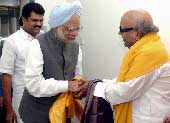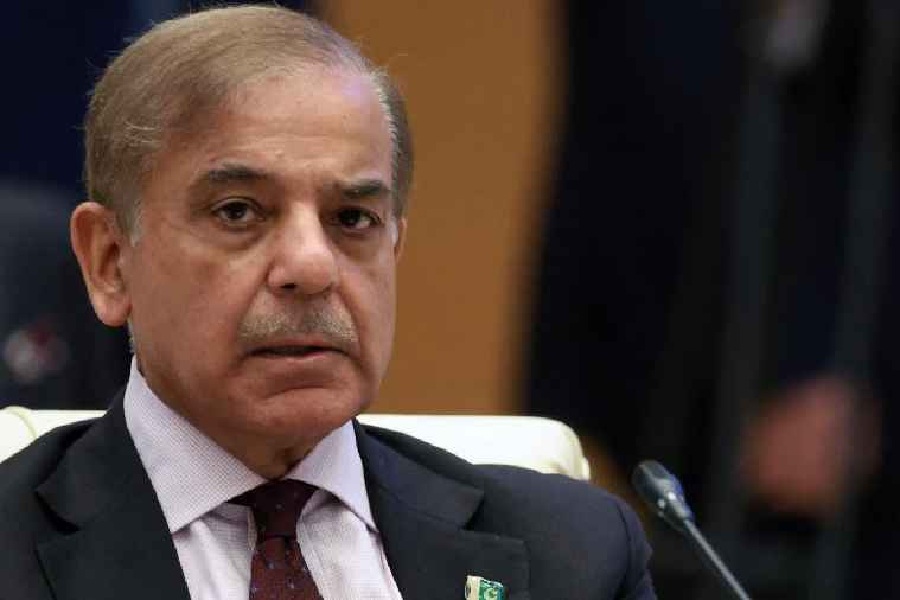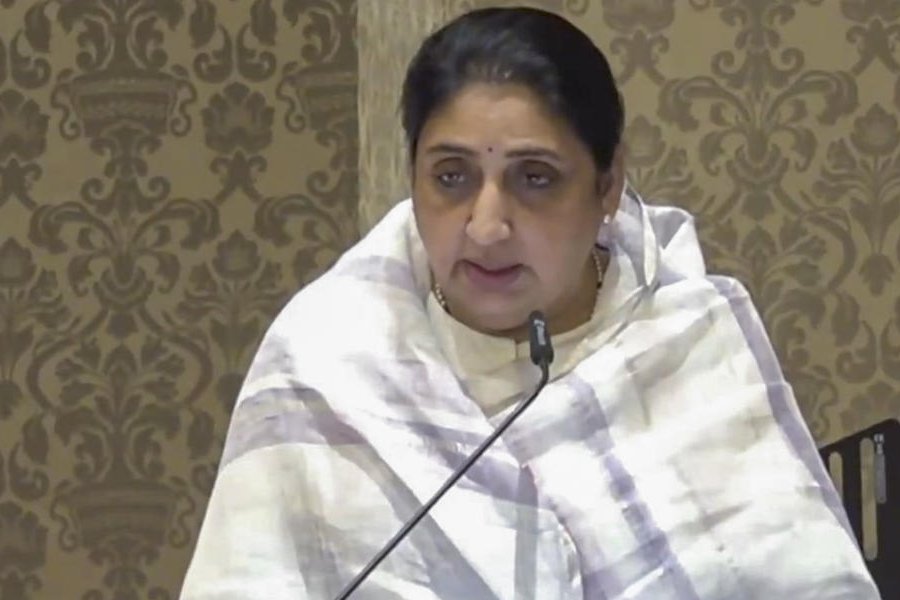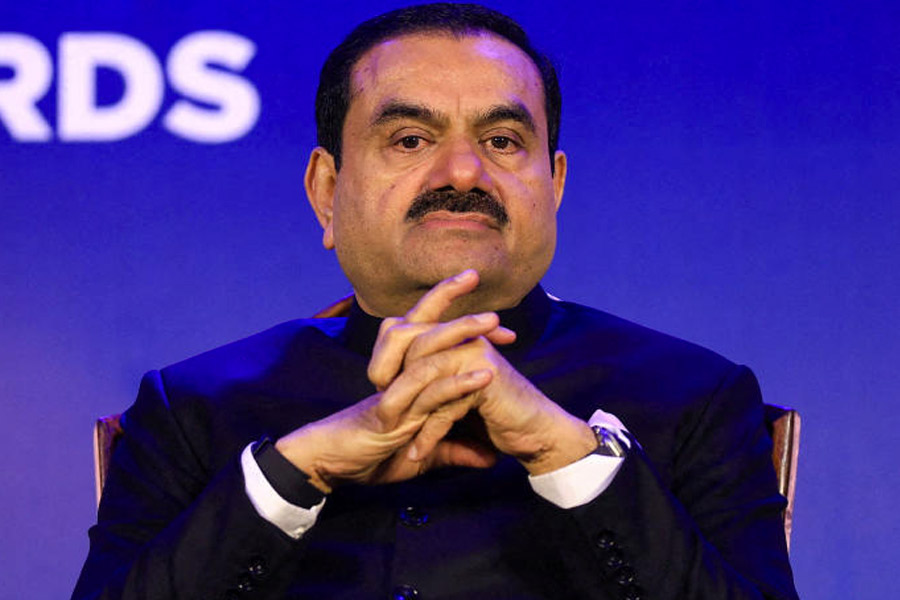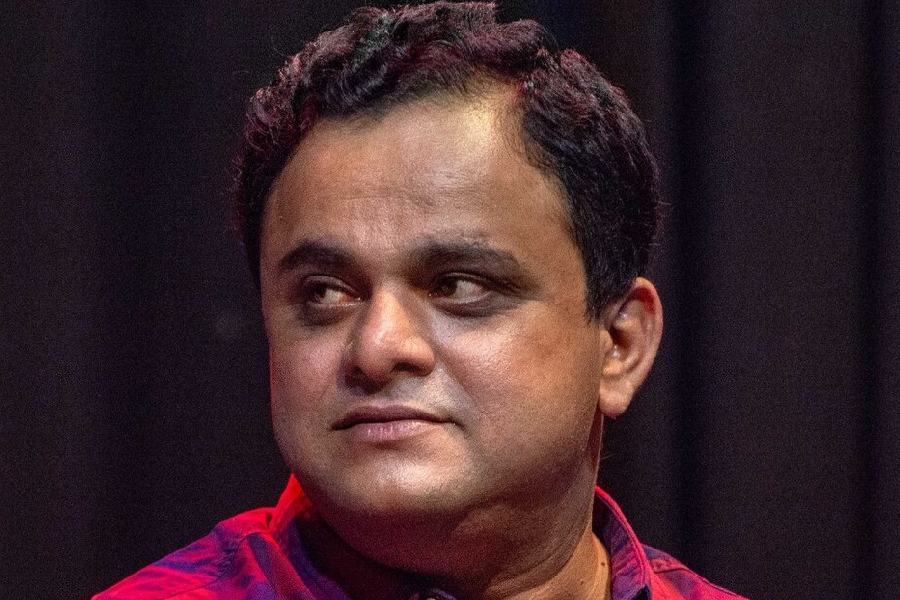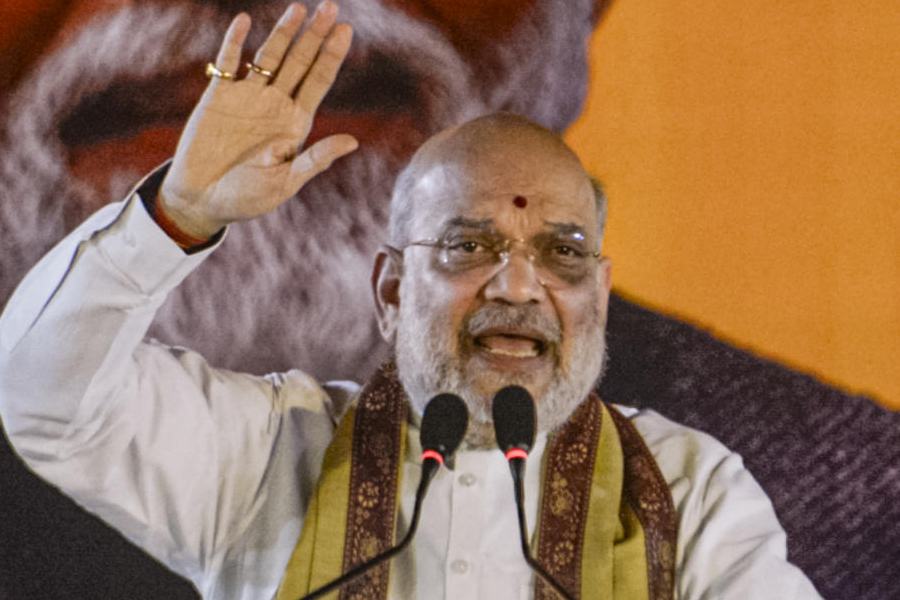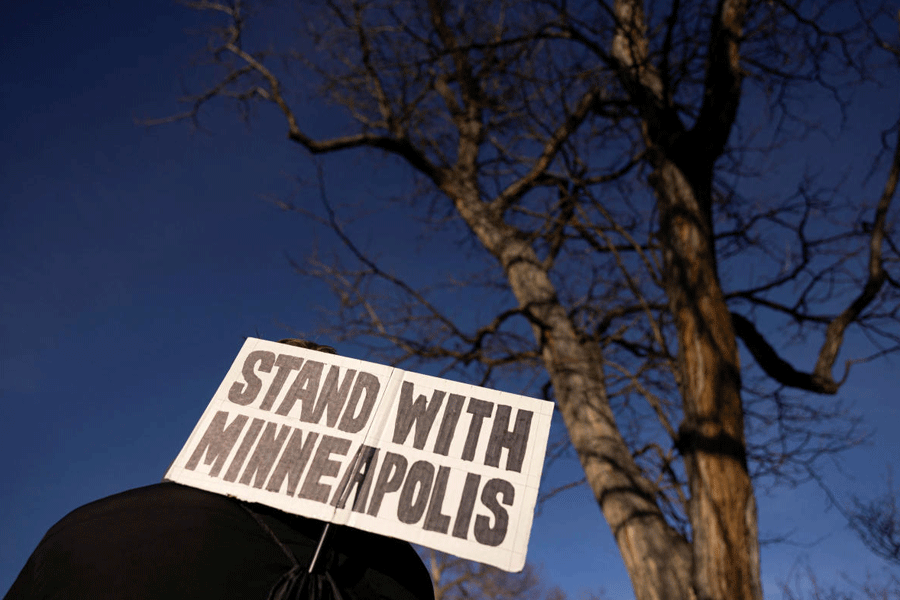|
|
| July 4, 1999: consoling losers |
I am writing this on the Jaipur-Delhi Shatabdi after attending the Rajasthan state convention of the Jama’at-i-Islami Hind. In astonishing discipline for a motley crowd of ten thousand men and women — regrettably curtained off from each other — the audience listened in pin-drop silence to discourses from Shankaracharya Madhavananda Saraswati of the Prayag Peeth, jathedars Ranjeet Singh and Tirlochan Singh of the Sis Ganj Gurdwara, Delhi and Anandpur Sahib respectively — and respectfully. Others who spoke included Magsaysay winner Sandeep Pandey and the Rajasthan Sahitya Akademi president, Ved Vyas. I was the only practising politician on the dais. It seemed an appropriate way of commemorating one year after what the Americans perversely call 9/11 (they mean 11/9 but cannot be expected to know better); the commencement of the year in which war will be unleashed on the guy who tried to kill my dad; and the week when “elections” are to be held in Pakistan (staunch ally of global democracy in the “global war on terrorism”) and elections (without inverted commas) are to be completed in Jammu and Kashmir.
I had not really prepared any remarks in advance but found myself linking these three dimensions of secularism as I went along: the domestic; the subcontinental; and the international. Let me try to regurgitate my ad lib reflections for readers. Most of what I had to say was, of course, related to secularism as the bed-rock of our nationhood. I have argued that theme for a decade or more in this column, first in the sadly deceased Sunday magazine and then in The Telegraph, so I need not revisit the argument here. But as I spoke to this Rajasthani Muslim audience, my mind wandered to my years in Karachi on the other side of the Thar Desert, where the atmosphere is so similar in terms of people and customs and abundant hospitality, but the alternative to secularism — nationalism based on religion — has so spectacularly failed.
I recalled taking my ambassador, K. Natwar Singh (now head of the Congress’s foreign affairs department), to see the amir of the Jama’at-i-Islami Pakistan, Ghafoor Ahmed. The amir passionately pleaded the cause of India-Pakistan friendship. Slightly startled at the rhetoric and perhaps curious for an explanation, the ambassador somewhat undiplomatically asked why the amir so favoured friendship with a country endlessly accused of being anti-Muslim. Ghafoor responded, “Because you have solved the Hindu-Muslim question. Before independence, the Muslim community was apprehensive of what its fate would be under Hindu raj. We in the Jama’at-i-Islami opposed Partition because we feared it would divide the Muslim community of the subcontinent and weaken it. Now we find that Pakistan is not true to the teachings of the Prophet (Peace Be Upon Him) but in India the minorities are by and large safe. Friendship between our countries will protect them further.”
That was 21 years ago. I do not know what Ghafoor’s views are today. So, I decided it would be impolitic to repeat them before the Jama’at-i-Islami Hind. But as the memory of Ghafoor wafted through my mind as I spoke, I felt the need to dwell on the Pakistan dimension to our secularism. The fact is that the India-Pakistan syndrome has replaced the pre-Partition argument over the two-nation theory. Then the likes of Veer Savarkar and Mohammad Ali Jinnah argued that Hindus and Muslims were two nations which could not co-exist in the same country. Now the hawks on both sides argue that India and Pakistan cannot co-exist in peace in the same subcontinent. Then the argument was communal. Now, tragically, it is “patriotic”.
While there are hard-headed reasons of diplomacy and defence for which the Indian secularist needs to be wary of Pakistan, the unabating hostility between the two countries provides the most generous grist to the mills of communalists on both sides of the border. In the India of the Bharatiya Janata Party, it has been made our patriotic duty to see the hand of the Inter-Services Intelligence in every Muslim transgression of the secular principle, and to portray the “pratikriya” (reaction) as the highest form of patriotism. A lunge for peace with Pakistan is imperative. Not with the impetuosity, naivete, theatrics and lack of careful preparation which Prime Minister Atal Bihari Vajpayee displayed at Lahore, but with the resoluteness and purposefulness, the careful prior preparation, the vision and the balance which Rajiv Gandhi displayed at Beijing. It is ridiculous to think peace with Pakistan is not possible. But for the accident of Partition, these would have been our people, our flesh and blood. If we cannot reach an accommodation with our own kind, of what use are the callisthenics of Yashwant Sinha and Jaswant Singh half a world away in Washington?
It is the essential communalism of the BJP establishment and the American establishment which sparks the rapport between them. National Democratic Alliance realpolitik has given up on the bilateralism of the Shimla agreement and looks to Washington to pull its Pakistan irons out of the fire. I am amazed at the pride the BJP takes in Bill Clinton having summoned Nawaz Sharif to Blair House on July 4, 1999 to get him to call off the hounds of war in Kargil. Why on July 4? Why not six weeks earlier when Pakistan’s perfidy was discovered? For the simple reason that Clinton was prudently checking on who was winning the ground war before decisively coming out against the loser. It was the Indian armed forces who won Kargil, not the White House. But so persuaded are the fainthearts of the NDA that in the world of a single super-power it is best to be on the “winning side” that they have muted their voices on the outrage George W. Bush is planning on Iraq. That war will be unleashed on Iraq is inevitable. The uproar and chaos that will engulf the Arab world on the morning after is equally inevitable.
We have been here before. In 1954, the Americans thought up the Baghdad Pact. Pakistan joined. India did not. Two years later, came Suez. Once again, India was on the side of right and Pakistan was stranded on the side of might. And because India was on the side of the Arab street, for the next five decades Pakistan could do nothing to undermine Arab and Muslim solidarity with our secular cause, domestic and international. Now Vajpayee and his cohorts are committing the folly of Iskander Mirza and Ayub Khan. With no regard for the rights and wrongs of the United States of America-United Nations-Iraq dispute, they are insidiously siding with the US in its communal quest for world dominance. The domestic war against communalism cannot be won unless we also win that war in the subcontinental and international dimensions.

